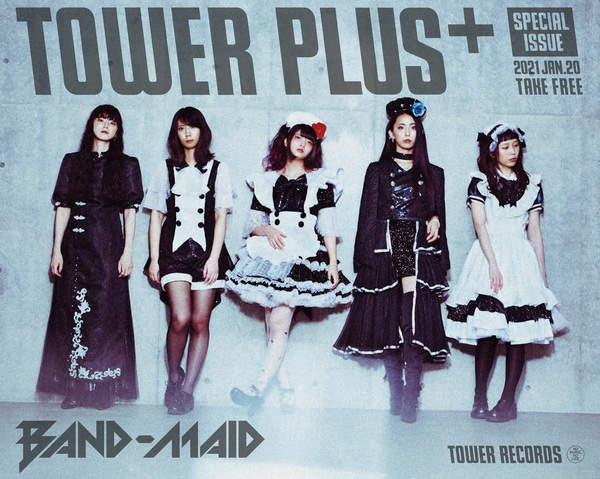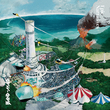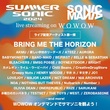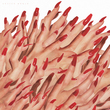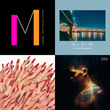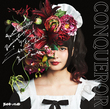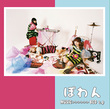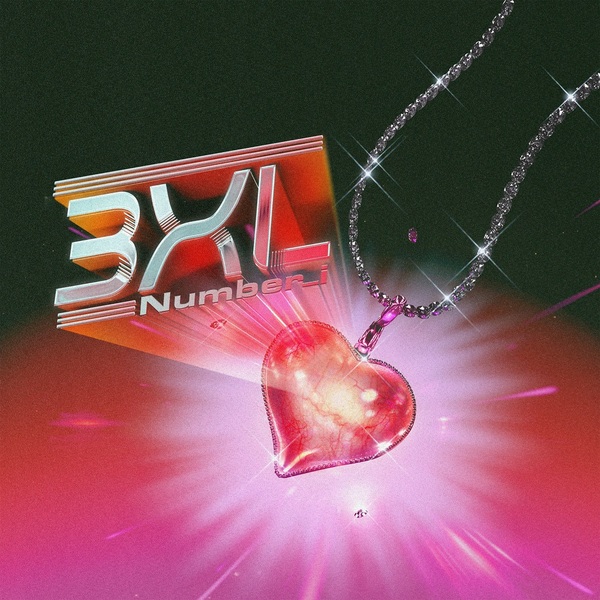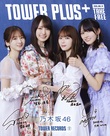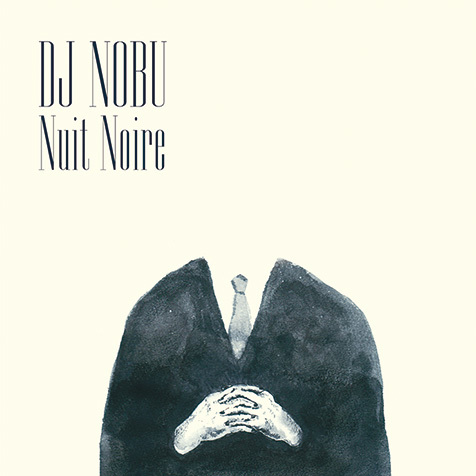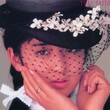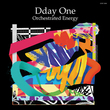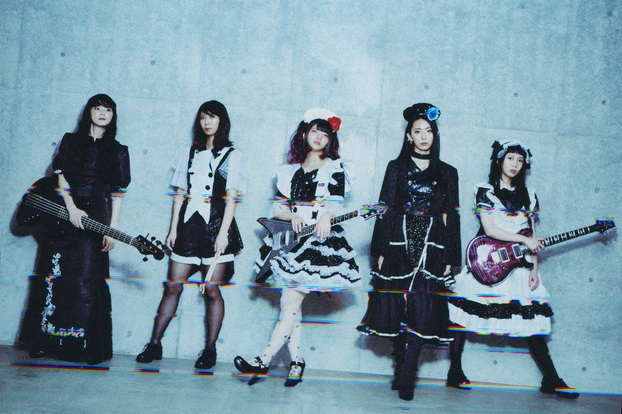
BAND-MAID, the five-piece female rock band clad in maid outfits, takes major strides towards achieving their goal – “world domination”. While vividly depicting the characteristic maid concept, they are also armed with aggressive hard rock sounds that completely contradicts the culture they portray, mesmerizing their audiences at a global level. As they wait to provide their ‘serving’ at the Nippon Budokan scheduled ahead this year, 2021, the band has announced the release of their 4th major label album – “Unseen World”! We’ve had the band spill out the inside stories of the making of the album, “Unseen World”.
*This interview was conducted before the Budokan show was cancelled.
― So we’re finally seeing the release of your new album, ”Unseen World”. How long did it take to put the whole album together?
Miku Kobato (Gt&Vo): We started production of many of the songs from when we did our serving (BAND-MAID’S concerts are referred to as ‘servings’) at the Shibuya Kokaido (currently renamed into LINE CUBE SHIBUYA) back in February. The process went on until we did the recording in November.
― Compared to many other years, you must have had to work on the production under unusual circumstances last year. Were there any differences to the production process compared to past productions?
Kobato: There weren’t any big differences to the production procedure itself. Although, because we were having to do more at home due to the Covid-19 pandemic, perhaps the difference would be that each song had been honed more closer to perfection by the time of recording. That’s because, for instance, each of us were able to pay more attention to the quality of the equipment we had at home, or what used to be a rushed and pressed process of making tracks and then arranging the songs, this time, we were able to take ample time on each song from the demo stage. So that may be a big difference from before.
― If that’s the case, I’m thinking that each of you engaged with your own role in more depth. How did each of you approach your roles, specifically in terms of song-making?
MISA(Ba): In my case, there were many times I’d turn to my own mannerism in the past, but because of the time allowed and the deeper commitment to each and every song this time, I was able to think a step further, for example, I’d be thinking “maybe this phrase suits this song better”, or “I’ve never tried this phrase before”. I was conscious of these thoughts when I was writing the basslines. Again, that was possible all the more because we had that time for ourselves.
AKANE(Dr): I crammed as much personal practice as possible in to the time I had during the self-restraint period. Usually, because of being on tours and such, I hadn’t been able to secure sufficient time to practice by myself, but this time, I made use of the time given to the fullest. And that seems to have prepared me for a smoother recording process. I was more comfortable with the intricate parts of the phrases and was also able to handle the higher-BPM tracks, which we have many of on this album. To be more specific, I focused mainly on exercises such as finger training or feet drum rolls, and I can feel the advancement of those in the album.
SAIKI(Vo): In the past, my home wasn’t really equipped with the ideal setting to practice singing full-out… well yes, maybe I was singing out at about 60% though (laugh), but since we were at the times of self-restraint and we had to stay in, I decided to arrange for a setting at home where I could record properly. We were always so away from home being on tour and everything and I hadn’t really been managing the environment at home, so I started from there. And thanks to that, it seemed to have pleased the members too, saying that even tentatively recorded songs “have much better sound quality”.
KANAMI(Gt): That’s true. And, because the sound quality was improved so much, mixing the tracks for making the demo was much easier too. I had myself pretty much locked in due to the Covid situation, and all the while during that period, I was working away making riffs. Just making and making and making riffs, out of which many were chosen for the songs on the album this time. Irrespective of this album, I had been technically training myself regularly by, for example, composing guitar solos on a slowed down tempo, or making guitar solos by pre-recording them on the piano. I leveraged those practices into the album and even included phrases that I’d usually need months of practice to master, so in that sense, I think I can say that this album has contributed much to my own professional progress.
―Kobato-san, you’ve written the lyrics for all the songs on the album this time again. Did you see any changes in terms of songwriting?
Kobato: Usually, the songwriting would be done at a rapid rate in a tight, tight schedule, but for this album, I managed to allocate a decent amount of time for a numberof the songs. One difference I can raise is that, I used to get my inspirations for the songs by taking some time outside, freshening up my mind etc., but because we were in this voluntary lockdown state, I didn’t quite have the chance to do that. So I just kept binge-reading things like mangas. ‘Reading’ works pretty well as a source of inspiration since you get to see both written characters and illustrations. I already knew that I wanted the lyrics to have some kind of a story-telling nuance to them from when I received the demo tracks from KANAMI, which is why I decided to look to such sources for inspiration.
― By the way, what genres of manga did you read?
Kobato: Oh I read all sorts! From romance to manga series published in the “Weekly Jump” magazine, and even manga from old times. I kept reading unstoppably and the genres I covered was really wide – it ranged from stories of con men, history or even about the mentally troubled (laugh).
― And following those circumstances, the new album 『Unseen World』 comes to life as a production that advocates ‘Genten_kaiki (back to the roots)’ and ‘’Genten-shinka (evolution from the present)’.
Kobato: The theme <Genten-kaiki> calls up the images of the music of when we started out. Back then, many of our songs were still being written by professional composers, so we thought it might be interesting to see how the songs would come out if we, as of today, made those songs just by ourselves. That’s how it started. But at the same time, we were also making tunes that were quite challenging for us, so we decided to bundle those under <Genten-shinka>. And putting these two themes together, this is the result you get.
― It is indeed quite stunning, the way you have the good old hard rock sounds in <Genten-kaiki>, but also take an aggressive approach in <Genten-shinka>.
Kobato: Perhaps the reason we have a good number of attack-mode aggressive tunes is that because we had this whole Covid situation. Like, we needed to pick ourselves up.
AKANE: I think the usual tendency of wanting to do something difficult and raising the hurdle for ourselves BY ourselves ―that came out again (laugh)
Kobato: With the previous album, we had this core concept of broadening our musical hemisphere, putting a little more weight on middle tempo tracks or neat and beautiful songs that we’d never done before. I’d say that the album this time is quite different from that.
― The so-called <Genten-shinka> aspects are prominent in songs like “Warning!” or “NO GOD”, but listening to them properly, I’m thinking that playing them must have been really tough!
Kobato: Yeah, the pain level is rising every year for sure (laugh)! That’s because the level of the songs are getting higher. To be honest, I don’t think we’re thinking of how they’re going to be when we actually play them live at the servings.
SAIKI: It’s like we’re just going, “yes, this is so cool! Let’s just do it, yes let’s!” with zero thoughts to how we’re going to have to play them (laugh).
AKANE: Each of us work hard enough to brush up our skills before so that we can complete the songs, but when we actually get together for the recording or serving, there’s this other pain we need to overcome of us having to coordinate with each other (laugh).
― So you mean, each of you raise your individual levels during the production period, but then when you enter recording, you need to raise your levels even more?
Kobato: When we’re making the songs, many of the times we’re not really at the required level yet. We work through the production process and recording and try to bring ourselves to the expected level before unveiling the song at the serving. So we simply work hard to get over that hurdle, I’d say.
SAIKI: We’re pretty ‘still’ at recordings, aren’t we?
Kobato: (At that time,) we’re not really thinking about performing the songs. But then when the actual serving comes, we’re like “ok, how are we gonna do this? (laugh)”
AKANE: You don’t even need to have a facial expression, so we end up working away in silence wearing serious faces as if we were some craftsperson.
― Yes, there were many renditions in each individual part where the improvement of skills was fairly prominent. Especially with the heavier sounds, you can tell the advancement of the rhythm section. The variation of kicks on AKANE’s drums has definitely been enriched.
AKANE: The skills level is rising every year. Not just in terms of speed, but also in the number of drum rolls on the bass drum. KANAMI usually puts together a demo with a rough version of the phrases, but this time for the track “BLACK HOLE”, I submit about 7 patterns of kick variations and had the members listen and decide on which one to use.
KANAMI: Each of them had names, and the first one was ‘地獄 (hell)’.
AKANE: Yes there was ‘Hell’ along with others like ‘Painful’, ‘Normal’ or ‘Easy-peasy’. They were named after the difficulty levels, but we decided to go with ‘Hell’ (laugh). I had a hunch that we’d choose ‘Hell’, not ‘Normal’.
SAIKI: It was an instant decision. “Yup, it’s ‘Hell’! We don’t even need to listen to ‘Easy-peasy’!!” Just like that(laugh)!!
KANAMI: For the demos I make, before, I hadn’t really properly studied how to play the drums myself, and I often ended up making drum lines that require three arms to play (laugh). But now I’m more controlled and can come up with things that doesn’t require three arms nor require you to be non-human. Although, I do always try and imagine what we might be capable of if we worked just a little bit harder. Even for the bass, I sometimes pop in something that ‘maybe I’d like to hear’, but of course it’s always up to how MISA feels.
MISA: I can say it was the busiest album for my (pick-using) right hand. Especially songs like ”NO GOD” or ”Why Why Why”. I’m basically a pick user, but when slapping is added on top of the fast tempo, the right hand simply needs to move faster (laugh).
― We usually hear how the fingering of the left hand gets really busy on the bass, but as you say, there is a good amount of slapping that leaves the impression of a busy right hand for sure.
MISA: Yeah, I guess that’s what happens when a pick-user slaps. Because of the fast tempo we have and because I like the way pick-playing sounds, I do place importance on playing with a pick, rather than using fingers.
― There are many tracks where the bass sound lingers, like the song ”本懐 (reads Honkai)”.
MISA: Very much so – for instance, ”I still seek revenge.” We never had that many songs heavy with slapping before, so it’s like a result of what happens when you make songs without any consideration of playing live at servings. I think I need to start working out now (laugh).

